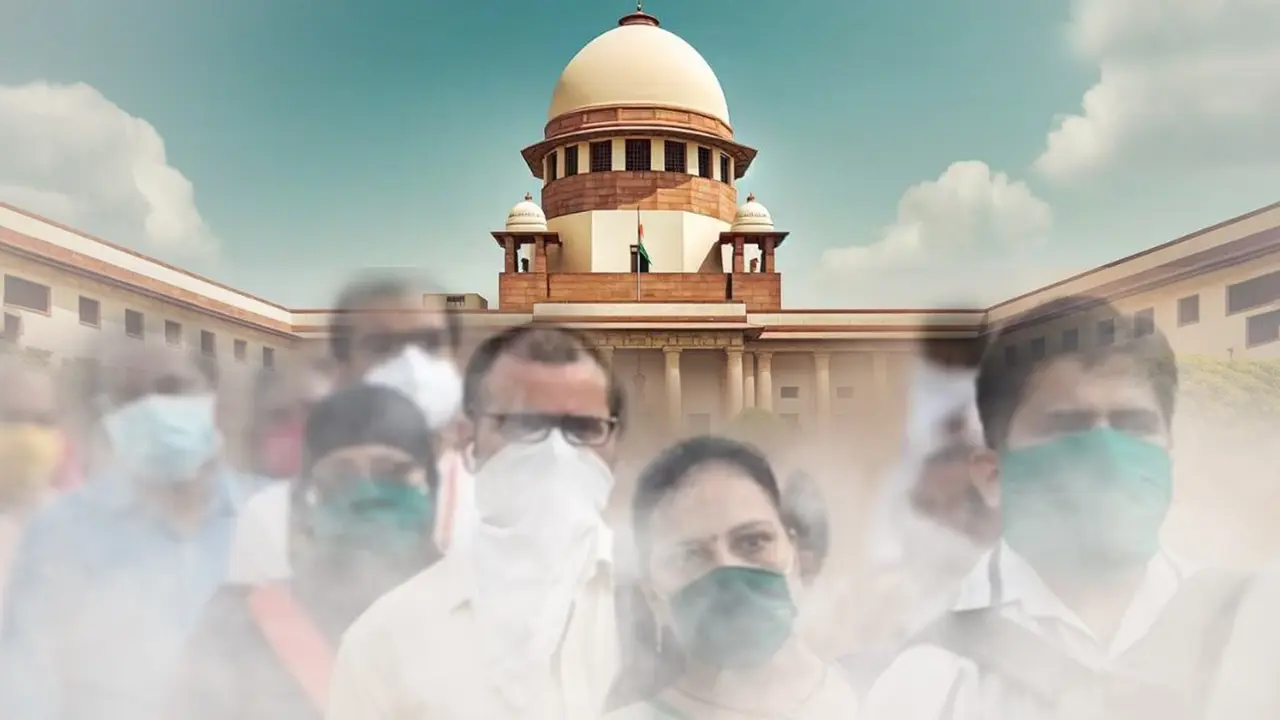Updated 25 November 2024 at 16:19 IST
'Serious Lapse': SC Orders CAQM to Initiate Action Against Delhi Govt, Police Officials
Supreme Court criticized the Delhi Police for failing to set up checkpoints at city's borders to check whether pollution measures are being properly enforced.
- India News
- 3 min read

New Delhi: The Supreme Court on Monday criticized the Delhi Police for failing to set up checkpoints at the city's borders to check whether pollution measures are being properly enforced.
SC said that unless satisfied there is a consistent decrease in AQI, it can't order curbs below GRAP-3 or GRAP-2.
SC Pulls Up Delhi Police Over Failure To Set Up Checkpoints
- ‘What orders were given to cops? Why were no checks on the entry points?' the court observed
Directs CAQM To Initiate Action Against Police and Delhi Government Officials
The top court said that a serious lapse has occurred on the part of Delhi Police and Delhi government officials due to the ed on the part of Delhi Police and Delhi government officials for lack of strict implementation of GRAP-IV measures.
- "It is apparent that authorities mentioned in GRAP IV clauses 1 to 3 have not made any earnest effort to implement action under clauses 1 to 3. Commissioners have noted that police were only deployed on November 23 and thus a serious lapse on the part of authorities in clauses 1 to 3. Thus we direct the commission to initiate action under Section 14 of the CAQM Act 2021," the court said.
Air Quality Commission Asked To Consider Restarting Physical Classes In Schools
The top court also asked the Commission of Air Quality Management to consider reopening schools, observing that many students lack mid-day meals and online education.
Advertisement
It also asked all states to use funds collected as labor cess for subsistence to laborers during the construction ban.
The Supreme Court on Monday asked the Commission for Air Quality Management (CAQM) in the national capital region and adjoining areas to consider restarting physical classes in schools and colleges noting many students lacked mid-day meals and infrastructure to attend online classes.
Advertisement
A bench of Justices Abhay S Oka and Augustine George Masih said a large number of students did not have air purifiers at home and therefore there may not be a difference between children at home and those attending schools.
The top court, however, refused to relax the anti-pollution GRAP-4 restrictions in Delhi-NCR and said unless it was satisfied that there was consistent decrease in AQI levels, it cannot order curbs below GRAP-3 or GRAP-2.
Noting that several sections of society, especially labourers and daily wagers, were adversely affected due to GRAP-4, the bench directed the state governments, where construction has been banned, to use funds collected as labour cess for subsistence to them.
GRAP-4 restrictions specifically relate to restricting entry of trucks carrying non-essential goods into the national capital.
First implemented in 2017, the Graded Response Action Plan (GRAP) was a set of anti-air pollution measures followed in the capital and its vicinity according to the severity of the situation.
Get Current Updates on India News, Entertainment News, Cricket News along with Latest News and Web Stories from India and around the world.
Published By : Manas Gupta
Published On: 25 November 2024 at 15:42 IST
